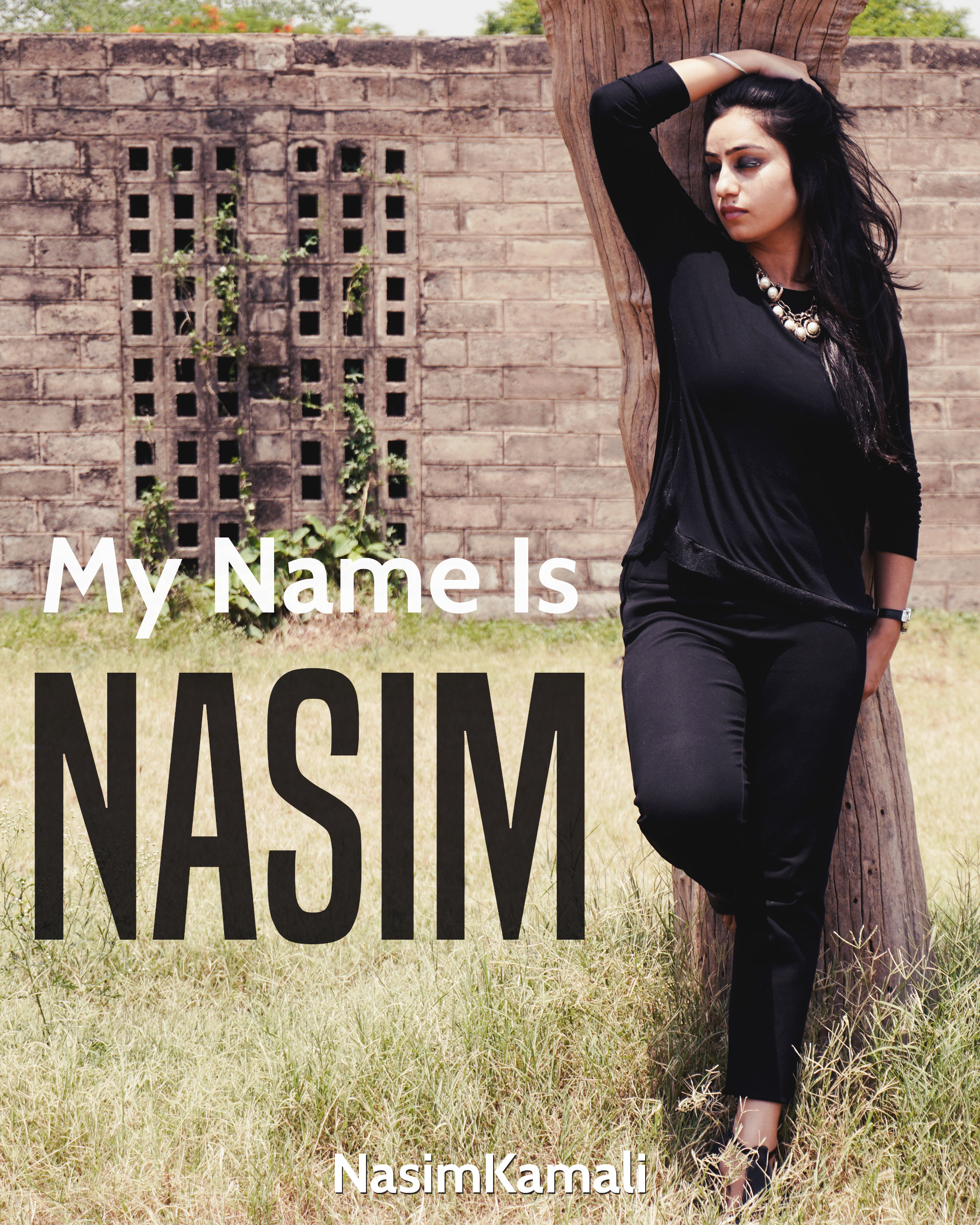You Are Reading

Age: All Ages
Reading Level: 4.5
- Cov
- Title
- 1
- 2
- 3
- 4
My Name Is Nasim

Chapter 1
The story starts like this: They tell you what you are. And you believe them.
I am eight years old when I am first called a terrorist. Eight years old when I feel the power of words puncture my chest like needles. Eight years old when my feet fall from the clouds and sink like lead.
It feels like jumping off a swing at the wrong moment and landing on prickly mulch. I am still figuring out how to tie my shoe laces and I’m still learning my times-tables when I first learn that my culture is dangerous. I think back to the weathered hands of my grandmother cradling my face and the warmth of my aunt’s voice tucking me in with old Persian lullabies. I wonder how my warm peace could ever be dressed up like a senseless war.
She says my skin is too dark. We stand on the metal stairs of our school’s playground. The playground's bright reds and yellows attract the fancy of wide-eyed children. And she says it again.
Across from us, a boy plays "Twinkle, Twinkle Little Star" on a toy piano. Clink, clink, clink. She says the hair that covers my arms reminds her of an animal—a gorilla. My shame ignites with the ferocity of a wild beast. Our very own pianist stops his playing, and he rings with laughter. But I hold my tongue. It is oppressive, this silence.
She has bright blue eyes that gleam in the sun and pale skin that bears light brown freckles. I think she is beautiful. When my mother says the same of me, I can only question her.
That night in the shower, I take a shaving razor stolen from my sister's drawer to the hair on my arms and legs. I scrape and scrape and scrape until the water runs clean down the drain. My bare limbs are dotted with blood. I am a young girl, but I know something is not right.
Chapter 2
I am eleven years old when I discover that to be American is to forget. Eleven years old when I stop responding to my parents in Farsi. I answer in English, instead.
The kids at school only want to learn dirty words from me. It seems my language is either a source of crude entertainment or shameful embarrassment. Maybe, I muse, it just depends on the day. At school, I stop practicing the writing my father has taught me—Persian script—when my math teacher peers over my notebook with a sneer. It is the same look my mother receives in public when she stumbles over her English words. I end our lessons. Going one step further, I tell my mother to stop giving me leftovers from home for school lunches.
“Don’t feed me what the kids call stinky—what they call disgusting. I need to be normal,” I want to say. Despite my requests, she keeps making the lunches. So I stow them in my backpack the entire day and eat the bland meals the school provides. They taste different, and everything feels wrong. It starts to feel like being American means to neglect.
One day, I write a list of new names for myself. My classmates can't pronounce the one I was given. They make jokes, saying it sounds like Nazi or nasty. I laugh and play along, but inside, the desert within me grows bigger and hotter. I decide to rename myself, to be like the rest of the bright-eyed children around me. But the jokes only get worse, and the laughter gets louder.
Chapter 3
I am fourteen years old when I read that my skin is like the color of spices from foreign lands. Fourteen years old when I am told I appear “exotic,” as if my heritage is a rare species among the human race. It's as if whiteness is normal, and anything else is marked as “other.”
I want to tell people to open their eyes. I want to scream that there are plenty of people like me, but the words sit in my mouth. Their heavy weight becomes a burden.
Men stare. They flirt with cheap lines dressed as compliments. It's like a lesson outside of school: they teach me the system. I learn that I am defined only by my otherness. I learn that I’m desired for all the wrong reasons.
I am fifteen years old when I am finally wanted for the right reasons. I return to my parents’ country for the first time in eight years. There, I overwrite all the hatred that I’ve swallowed with admiration.
My parents' country, beneath the dust and fog that the news always shows, is a land of beauty. I see the beauty now. It's everywhere. It's in the way my uncle crouches low on his prayer mat, whispering words of worship. It's in the delicate paintings on urban buildings, of women who look like me. It's in the way the people carry themselves—with pride—as they walk down the streets. This is not a war zone—not a base that breeds violence and hate. It's a nation that breeds love and family.
My grandmother is long gone now, but my aunt’s voice carries on for the both of them. My family and I—cousins and brothers and sisters and uncles and aunts—gather around in my aunt's small living room and sway to the slow beat of her song. Someone is filming us, but it's not needed. I know I will remember the moment forever.
Sometimes I catch my father singing, too. One day, his lilting voice croons in the kitchen while he cooks. He is singing the same song he always does, but for the first time I pay attention to the words. He sings of revolutions, brotherhood, bravery, of the loss of innocence among noble men. I search the internet for all the words and sing them back to him. Our voices weave together to create a tale of glory. Although the distance between us and my family is great, our words are strong enough to piece us together again.
Chapter 4
I am seventeen years old when I learn to use my voice. “My name is not Nuh-seem,” I tell them. I tell them all, and my voice rings with clarity.
It is raining over the desert. I become the muezzin atop a minaret, but instead my call to prayer is a call to identity. “My name is not Nazi—not Nasty. My name is Nasim.” The five letters of my name are pure salvation.
The story ends like this: they tell you what you are. This time, you know better.


